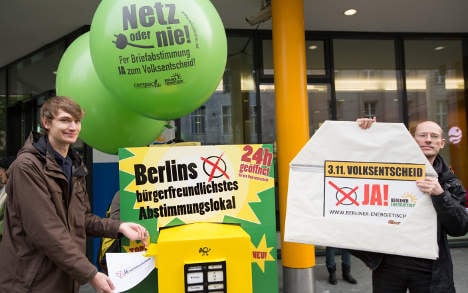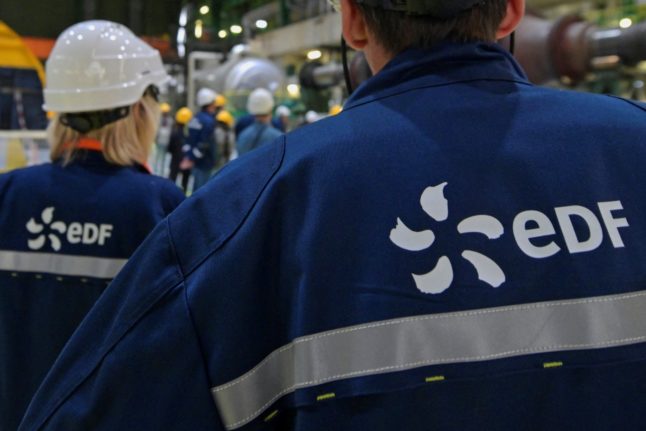A citizens' initiative called Berliner Energietisch wants residents to have more say over the way Berlin's energy is managed and hopes to boost the city's move to clean electricity by founding its own public utility.
At the end of next year, the capital's 20-year contract with energy provider Vattenfall is due to expire. And the people behind the referendum see it as a chance to take the city grid back into public hands, redirect energy profits to Berlin and give citizens a chance to steer energy policy.
In letters sent out to Berlin's 2.4 million eligible voters at the start of this month, the group urged citizens to vote for an “affordable, ecological and democratic energy supply,” which it said would allow them a say on how the utility is run.
The initiative is also claims to have green credentials as it would attempt to abandon coal and nuclear sources and establish “decentralized, renewable energy plants in Berlin-Brandenburg” as part of the city's goal to switch to 100 percent renewable energy.
Although supported by left-wing parties including the opposition Greens, Pirate Party and the Left Party in the regional Berlin Senate, the ruling Social Democrat (SPD) Christian Democrat (CDU) coalition has come out against the plan and in early September recommended that citizens reject the move.
The city's rulers say the initiative is unnecessary, as they are already “pursuing a policy of decentralized energy supply, advancement of renewable energies and securing affordable energy prices.”
The bottom line, say the CDU, is that Berlin just does not have the money. The costs involved in buying back the city's grid, the party says, would put an unmanageable burden on an already over-strained budget.
Berlin-based economist and director of NGO Young Voices, Fred Roeder, told The Local the move could have “fatal effects on the competitiveness and credit rating of Berlin.”
“Berlin’s per capita debt is already higher than that of the bankrupt city of Detroit. After acquiring the energy grid for up to €3 billion, the public finances and credit rating of Berlin would be even worse than they already are,” said Roeder.
The bill for the grid license would increase the city's debt by around five percent, he said, and would push interest costs up by €100 million a year. “This illustrates how economically non-viable this initiative is and that the promised return on investment … won’t be realized.”
Regional business groups such as the Berlin branch of the IHK industry and trade association have also warned against the move, which they believe will be a further drain on resources which could instead go to help the city's entrepreneurs.
Citizens can kick-start referendums in Berlin if they collect signatures from at least seven percent of the city's eligible voters for a petition. The last time this happened was a public vote in 2011 on a motion demanding the partially privatized water works open its books to the public.
If this result is anything to go by, Berliners are generally staunchly in favour of having a greater say in the way their utilities are run. Back then an overwhelming 98.2 percent of the 678,000 voters who turned out said they wanted more transparency for the city's water contracts.
The referendum on November 3rd needs at least a 25 percent turn-out to be considered valid, meaning the initiative needs 630,000 residents to vote in favour for it to pass.
READ MORE: Water utility referendum a 'cold shower' for Berlin
The Local/jlb



 Please whitelist us to continue reading.
Please whitelist us to continue reading.
Member comments